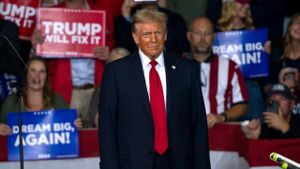Germany is set to hold early elections on February 23, 2025, after Chancellor Olaf Scholz faced the humbling defeat of losing a confidence vote within the parliament. This pivotal moment follows the collapse of his coalition government, which has been rocked by turmoil over the past few months.
During the recent vote, Scholz managed to secure support from only 207 of the 733 lawmakers present in the Bundestag, falling short of the required 367 votes needed for a majority. The crisis escalated significantly following the dismissal of Finance Minister Christian Lindner last November, which led to the exit of the pro-business Free Democrats from the coalition. Consequently, the Social Democrats (SPD) and the Greens are now left to govern without parliamentary backing until the formation of a new government.
This political instability has unfolded against the backdrop of mounting discord concerning fiscal strategies and spending priorities, leaving many to criticize Scholz's administration for its handling of key economic issues.
Scholz, who previously served as Hamburg's mayor and finance minister, framed the upcoming election as a decisive choice for the electorate. He pointed to the stark differences between his vision for investment-driven growth versus the austerity measures proposed by his political opponents.
"Shortsightedness might save money in the short term, but the mortgage on our future is unaffordable," Scholz remarked during the heated exchange with his conservative challenger Friedrich Merz, leader of the Christian Democratic Union (CDU). Polls currently suggest Merz's party holds the upper hand, which adds pressure on the current chancellor.
The far-right Alternative for Germany (AfD) is also becoming increasingly significant within the political arena, complicatively affirming their presence as mainstream parties resist collaboration with them. Merz has seized the opportunity to present himself as the candidate for change, accusing Scholz of incompetence and of failing to deliver on key promises.
He stated, "Taking on debt at the cost of the young generation, spending money - and you didn't say the word 'competitiveness' once," highlighting the Generational burden posed by Scholz's spending plans.
With the early elections on the horizon, Scholz is not sitting idly by. He has outlined several proposals aimed at stabilizing his government, including measures such as tax cuts and increased child benefits, which he hopes will resonate positively with voters. Before the election takes place, he aims to push through approximately 11 billion euros ($11 billion) worth of tax cuts, alongside other family-centric benefits.
Despite promising initiatives, the challenge remains steep. Surveys indicate the conservative CDU has managed to carve out a comfortable lead over the SPD, which has narrowed recently to just above 10 points. Meanwhile, the AfD appears to be competing closely, causing concern among mainstream parties about the potential fragmentation of the political system.
Adding to the complexity of upcoming campaign strategies, Robert Habeck, candidate from the Greens, warned about the inherent difficulties facing the next government amid the fragmented political scenarios. "It's very unlikely the next government will have it easier," he stated.
Looking forward, the actions leading up to the election will be pivotal. Schulz's proposals aim to alleviate immediate economic concerns, but his party will have to navigate through turbulent waters filled with public discontent and opposition. Will he maintain his leadership or will the conservative opposition seize the opportunity for change? With tensions ramping up, the next few weeks promise to be decisive for the political future of Germany.



